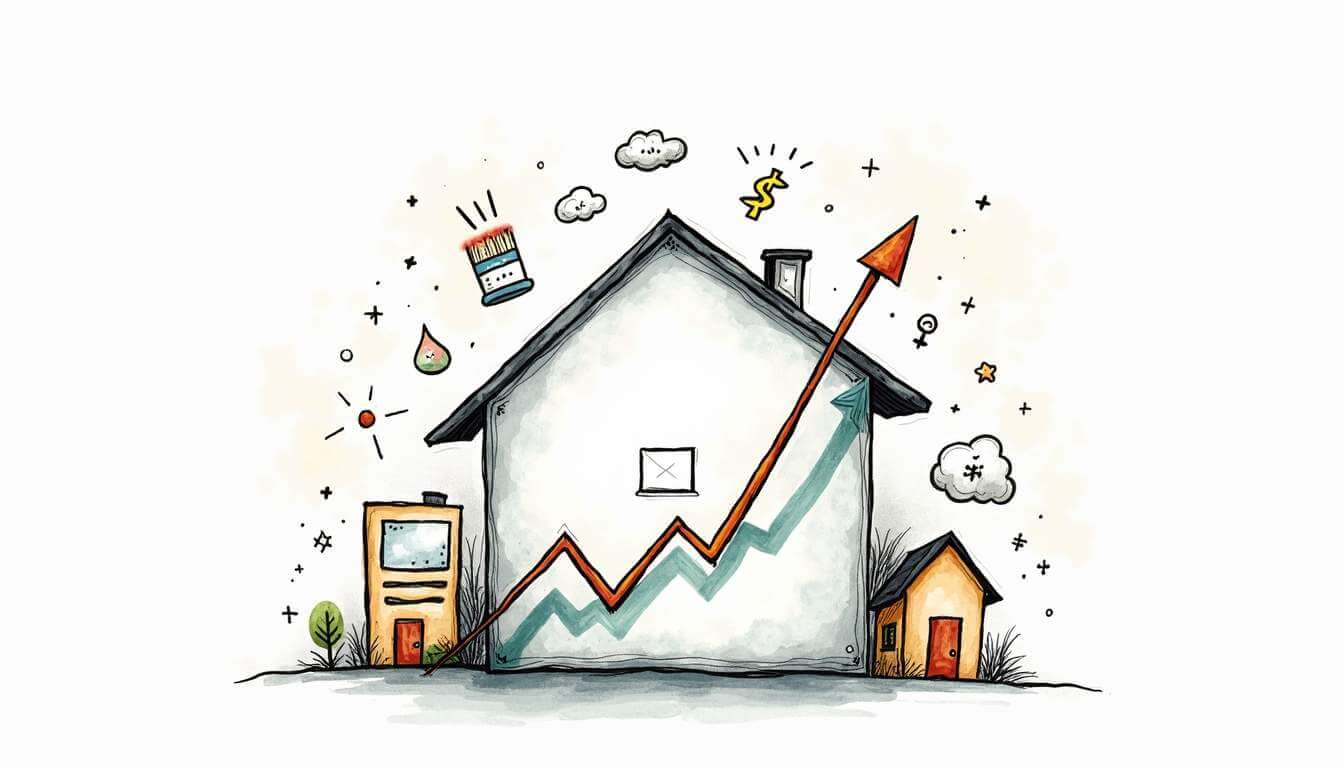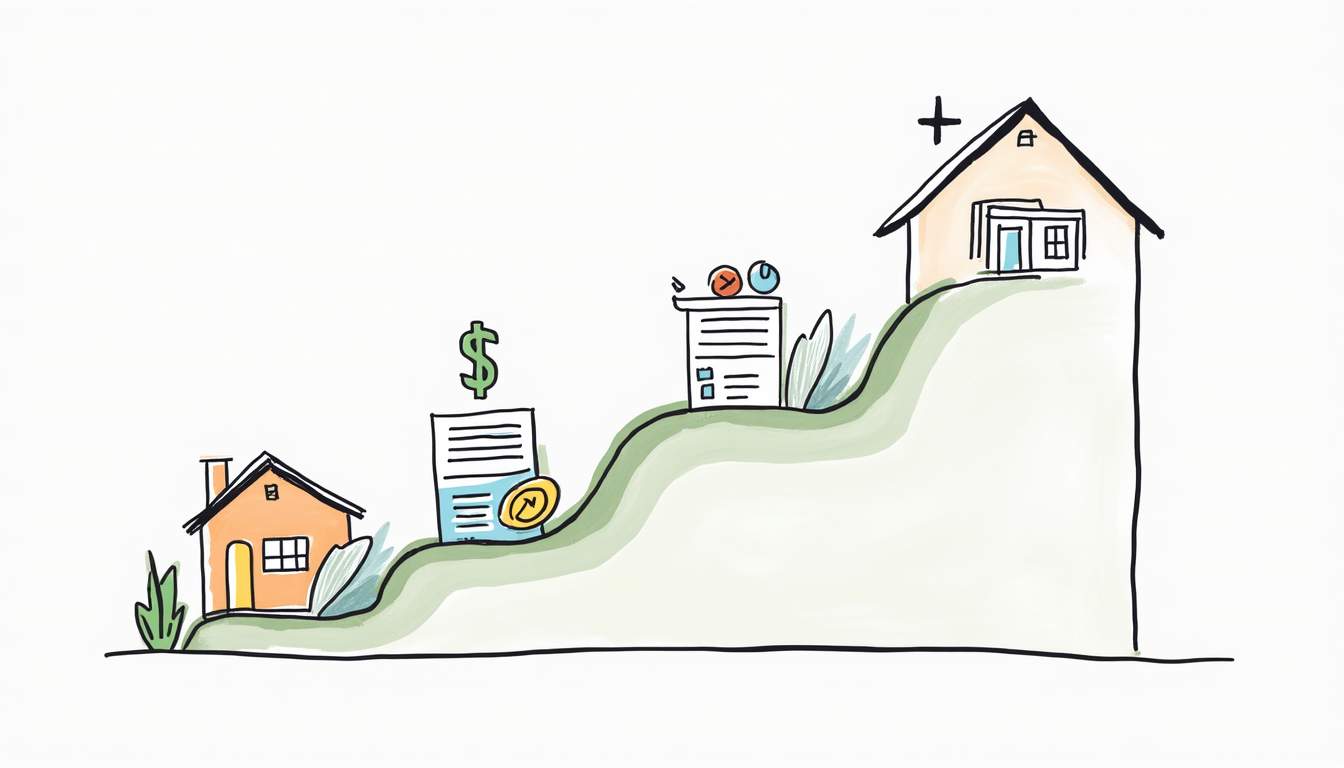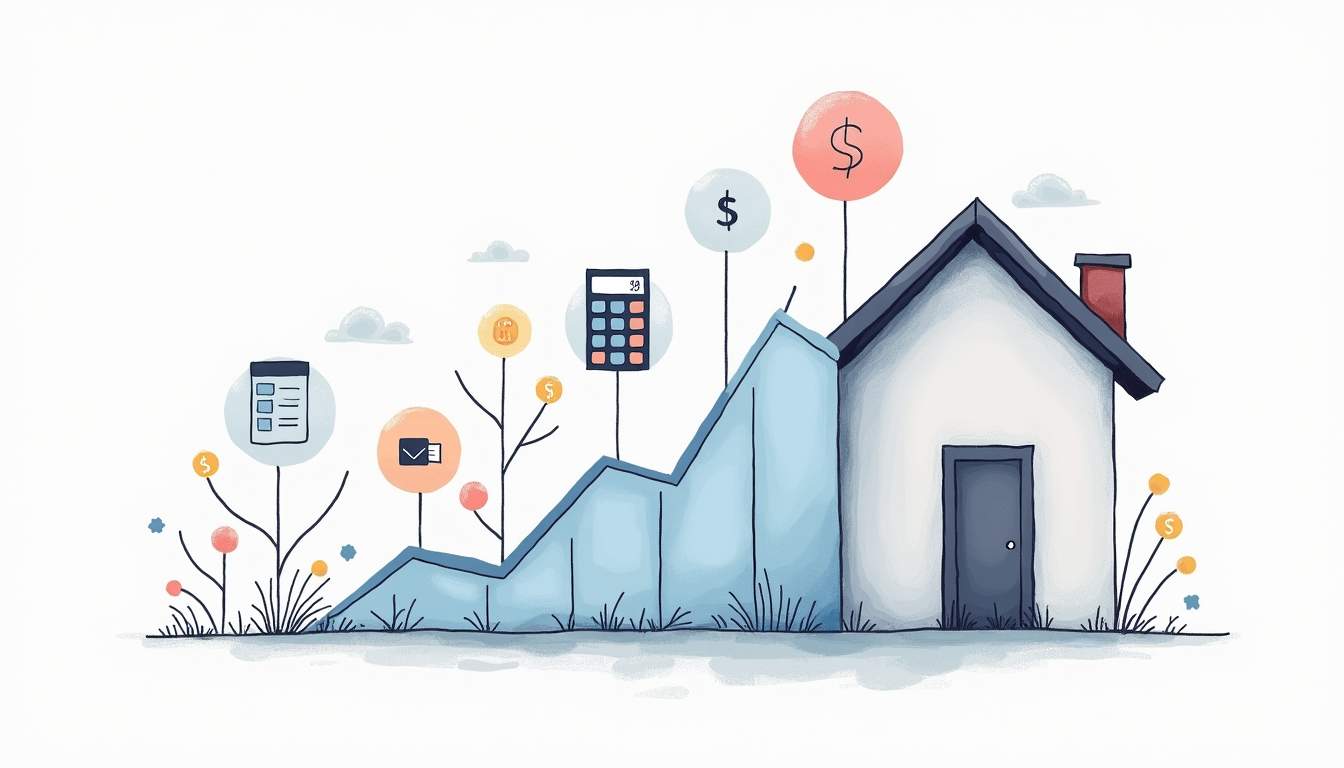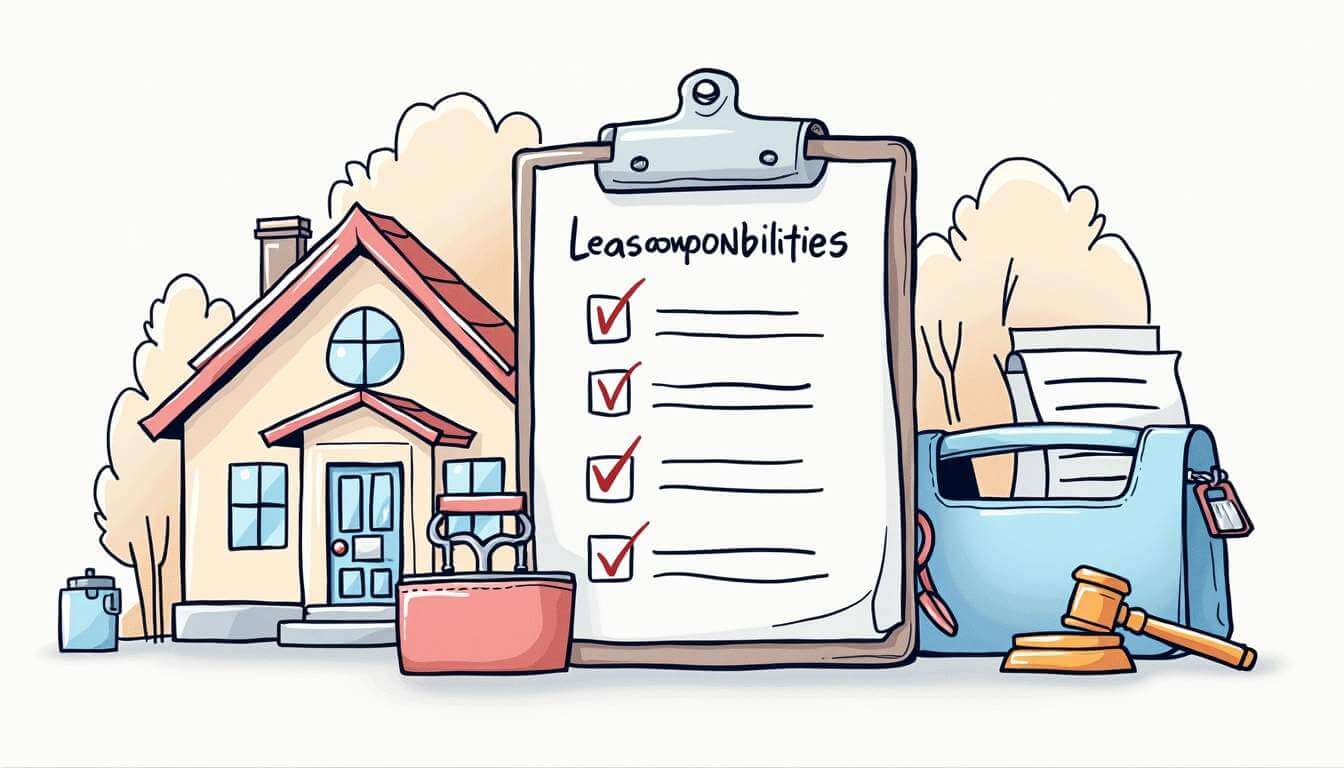Investing in rental properties can be a lucrative venture, but it’s crucial to maximize your return on investment (ROI). Understanding the factors that influence rental property ROI and implementing effective strategies can significantly boost your earnings. This article will guide you through some essential concepts and actionable steps to enhance your rental property ROI.
Understanding Rental Property ROI
To effectively manage your rental investments, you first need to understand what rental property ROI entails. It’s not merely about earning money; it’s about making sure that the income generated from your property is a worthwhile return when compared to the costs involved.
Definition of Rental Property ROI
Rental property ROI is a measure that expresses the profitability of your real estate investment. It typically considers the net income generated from the property versus the total costs incurred, including purchase price, maintenance, marketing, and property management fees. A simple formula to calculate ROI is:
- Net Annual Income = Total Rent Income – Total Expenses
- ROI = (Net Annual Income / Total Investment) x 100
Importance of High Rental Property ROI
A high rental property ROI is crucial for several reasons. Firstly, it signifies that your investment is performing well, allowing you to recoup the costs and earn profits in the long run. Secondly, the higher your ROI, the more resources you have for reinvestment, maintenance, or reinvigorating your property to attract better tenants.
Moreover, investors often use ROI as a benchmark for comparing different investment opportunities. It aids in informed decision-making about where to allocate their funds for the best potential returns. Understanding the nuances of ROI can also help you identify areas for improvement in your property management strategy. For instance, if your ROI is lower than expected, it may prompt you to reevaluate your pricing strategy, enhance your marketing efforts, or even consider renovations that could increase property value and appeal.
Additionally, a thorough grasp of ROI can assist in navigating market fluctuations. In times of economic uncertainty, knowing your property’s ROI can help you make strategic decisions, such as whether to hold onto your investment or sell it at a profit. This knowledge empowers you to respond proactively to changing market conditions, ensuring that your rental property remains a viable source of income regardless of external factors.
Strategies to Boost Your Rental Property ROI
Now that you grasp the importance of rental property ROI, let’s explore some strategies that can help improve it. These strategies focus on enhancing property value, increasing rental income, and ultimately maximizing profits.
Improving Property Condition
A well-maintained property attracts more tenants and usually commands a higher rental price. Investment in renovations or repairs can range from simple changes like a fresh coat of paint to larger projects such as remodeling a kitchen or bathroom.
Additionally, consider Energy Star-rated appliances and fixtures that not only appeal to environmentally conscious tenants but can also decrease utility costs—benefits you can pass on through slightly higher rent. Furthermore, enhancing curb appeal through landscaping, exterior painting, or improved lighting can create a positive first impression, making potential tenants more likely to choose your property over others.
Strategic Property Pricing
Pricing your rent competitively is key to attracting and retaining tenants. Research similar properties in your area to determine a fair price point. Utilize online platforms and local real estate reports to find out what others are charging.
Keep in mind that overly high rental prices may lead to longer vacancy rates, which can diminish your ROI. Regularly review and adjust the pricing based on market trends and economic conditions. Additionally, consider offering flexible lease terms or temporary discounts during peak rental seasons to entice potential tenants while still maintaining a profitable rate.
Tenant Retention Tactics
Finding new tenants can be expensive and time-consuming. Focusing on tenant retention can help ensure a steady income stream. Implement strategies such as offering lease renewals with incentives or keeping open communication with your tenants to address their needs promptly.
Creating a sense of community within your property—like hosting social events or providing referral bonuses—can also help strengthen relationships and encourage long-term leases. Moreover, consider implementing a tenant feedback system, allowing residents to voice their opinions on property management and maintenance issues. This not only demonstrates that you value their input but also helps you identify areas for improvement that could enhance tenant satisfaction and loyalty.
Maximizing Rental Income
Maximizing your rental income often requires a proactive approach to finding additional streams of revenue beyond traditional rent payments. Let’s explore some possibilities.
Exploring Additional Income Streams
In addition to rent, think about adding additional income streams. For instance, if you have ample space, consider renting storage units or offering laundry facilities. Renting out a garage or parking space can also provide you with added revenue.
Some property owners have successfully converted unused areas into additional rental units or Airbnb spaces, especially in high-demand areas, thus diversifying their earning potential. This strategy not only increases income but also makes use of otherwise neglected spaces. For example, a basement can be transformed into a cozy studio apartment, complete with a kitchenette and bathroom, appealing to short-term renters looking for a unique stay. Additionally, consider offering amenities such as bike storage or outdoor recreational areas, which can attract more tenants and justify higher rental rates.
Implementing Rent Increase
Years of consistent management and maintenance may warrant a rental increase. Be sure to market this increase effectively and inform tenants ahead of time. You may also offer enhanced services, improved facilities, or remodeled spaces to justify the increase.
However, always ensure that the proposed increase aligns with local rental pricing laws and market conditions to avoid losing tenants. It’s also beneficial to conduct a thorough market analysis to understand how your property compares to similar listings in the area. Additionally, consider offering incentives for lease renewals, such as a small discount for signing a longer lease or including utilities in the rent, which can help maintain occupancy rates while still allowing for incremental increases in income over time. Engaging with tenants and understanding their needs can also foster goodwill, making them more amenable to changes in rental terms.
Minimizing Rental Property Expenses
While strategies to boost income are vital, managing your expenses is equally crucial. Reducing unnecessary costs will directly improve your profit margins, thus enhancing your ROI.
Regular Maintenance and Repairs
Implementing a regular maintenance schedule can minimize the risk of costly repairs down the line. A well-structured maintenance routine not only keeps your property in good shape, but it prevents small issues from escalating.
Additionally, consider investing in quality materials and fixtures that may have a higher upfront cost but could save you money on replacements and repairs in the future. For instance, opting for durable flooring or energy-efficient appliances can significantly reduce long-term maintenance needs and utility bills, respectively. Furthermore, seasonal inspections can catch problems before they develop into major headaches, ensuring that your property remains attractive to tenants and retains its value over time.
Cost-effective Property Management
Whether you manage your property yourself or choose a management company, keeping costs down is vital. Review management contracts or consider self-management if feasible. Educating yourself on property management tasks can save you money and give you greater control over your investment.
If you do hire a management service, choose one that offers a transparent pricing structure with clear expectations to avoid unnecessary costs. Additionally, look for property management companies that provide value-added services, such as tenant screening and maintenance coordination, which can help you avoid costly vacancies and ensure that your property remains in high demand. Engaging with local landlord associations or online forums can also provide insights into best practices and cost-saving tips from experienced property owners, further enhancing your ability to manage expenses effectively.
Leveraging Tax Benefits for Rental Property
Tax benefits associated with rental properties can be a significant factor influencing your overall ROI. Understanding these benefits can make a big difference in your net earnings.
Understanding Depreciation
Depreciation allows property owners to deduct the cost of the property over time. This non-cash expense decreases your taxable income, leading to substantial tax savings. It’s usually calculated over 27.5 years for residential properties. By effectively utilizing depreciation, you can offset rental income, which can be especially beneficial in the early years of property ownership when expenses may be higher.
Keep accurate records and work with a tax professional to effectively manage this aspect of your rental property finances and ensure compliance with tax regulations. Additionally, understanding the nuances of depreciation can open up opportunities for cost segregation studies, which can accelerate depreciation deductions and further enhance your tax strategy.
Exploring Tax Deductible Expenses
Be savvy about the expenses that you can deduct. Common deductible expenses include mortgage interest, property taxes, insurance, repairs, property management fees, and some utilities. Keeping detailed records of all expenditures will not only help you maximize deductions but also streamline any tax filing process. Furthermore, expenses related to travel for property management or maintenance can also be deductible, allowing you to recoup costs associated with managing your investment effectively.
Using software tools designed for rental property management can drastically simplify tracking income and expenses, making tax time much less stressful. These tools often provide features that automatically categorize expenses and generate reports, which can save you hours of manual entry. Moreover, some platforms offer integration with accounting software, ensuring that your financial records are always up-to-date and accurate, thus enabling you to make informed decisions about your rental property investments.
Streamline Your Property Management with COHO
Maximizing your rental property ROI has never been easier with COHO. Our innovative property management software is designed to optimize the management of HMOs, single-lets, student HMOs, and diverse rental portfolios. By integrating all stakeholders into a unified, efficient workflow, COHO helps you save time, reduce costs, and increase your rental income. Ready to take your property management to the next level? Try COHO for Free today and experience the difference for yourself.
Investing in rental properties can be a lucrative venture, but it’s crucial to maximize your return on investment (ROI). Understanding the factors that influence rental property ROI and implementing effective strategies can significantly boost your earnings. This article will guide you through some essential concepts and actionable steps to enhance your rental property ROI.
Understanding Rental Property ROI
To effectively manage your rental investments, you first need to understand what rental property ROI entails. It’s not merely about earning money; it’s about making sure that the income generated from your property is a worthwhile return when compared to the costs involved.
Definition of Rental Property ROI
Rental property ROI is a measure that expresses the profitability of your real estate investment. It typically considers the net income generated from the property versus the total costs incurred, including purchase price, maintenance, marketing, and property management fees. A simple formula to calculate ROI is:
- Net Annual Income = Total Rent Income – Total Expenses
- ROI = (Net Annual Income / Total Investment) x 100
Importance of High Rental Property ROI
A high rental property ROI is crucial for several reasons. Firstly, it signifies that your investment is performing well, allowing you to recoup the costs and earn profits in the long run. Secondly, the higher your ROI, the more resources you have for reinvestment, maintenance, or reinvigorating your property to attract better tenants.
Moreover, investors often use ROI as a benchmark for comparing different investment opportunities. It aids in informed decision-making about where to allocate their funds for the best potential returns. Understanding the nuances of ROI can also help you identify areas for improvement in your property management strategy. For instance, if your ROI is lower than expected, it may prompt you to reevaluate your pricing strategy, enhance your marketing efforts, or even consider renovations that could increase property value and appeal.
Additionally, a thorough grasp of ROI can assist in navigating market fluctuations. In times of economic uncertainty, knowing your property’s ROI can help you make strategic decisions, such as whether to hold onto your investment or sell it at a profit. This knowledge empowers you to respond proactively to changing market conditions, ensuring that your rental property remains a viable source of income regardless of external factors.
Strategies to Boost Your Rental Property ROI
Now that you grasp the importance of rental property ROI, let’s explore some strategies that can help improve it. These strategies focus on enhancing property value, increasing rental income, and ultimately maximizing profits.
Improving Property Condition
A well-maintained property attracts more tenants and usually commands a higher rental price. Investment in renovations or repairs can range from simple changes like a fresh coat of paint to larger projects such as remodeling a kitchen or bathroom.
Additionally, consider Energy Star-rated appliances and fixtures that not only appeal to environmentally conscious tenants but can also decrease utility costs—benefits you can pass on through slightly higher rent. Furthermore, enhancing curb appeal through landscaping, exterior painting, or improved lighting can create a positive first impression, making potential tenants more likely to choose your property over others.
Strategic Property Pricing
Pricing your rent competitively is key to attracting and retaining tenants. Research similar properties in your area to determine a fair price point. Utilize online platforms and local real estate reports to find out what others are charging.
Keep in mind that overly high rental prices may lead to longer vacancy rates, which can diminish your ROI. Regularly review and adjust the pricing based on market trends and economic conditions. Additionally, consider offering flexible lease terms or temporary discounts during peak rental seasons to entice potential tenants while still maintaining a profitable rate.
Tenant Retention Tactics
Finding new tenants can be expensive and time-consuming. Focusing on tenant retention can help ensure a steady income stream. Implement strategies such as offering lease renewals with incentives or keeping open communication with your tenants to address their needs promptly.
Creating a sense of community within your property—like hosting social events or providing referral bonuses—can also help strengthen relationships and encourage long-term leases. Moreover, consider implementing a tenant feedback system, allowing residents to voice their opinions on property management and maintenance issues. This not only demonstrates that you value their input but also helps you identify areas for improvement that could enhance tenant satisfaction and loyalty.
Maximizing Rental Income
Maximizing your rental income often requires a proactive approach to finding additional streams of revenue beyond traditional rent payments. Let’s explore some possibilities.
Exploring Additional Income Streams
In addition to rent, think about adding additional income streams. For instance, if you have ample space, consider renting storage units or offering laundry facilities. Renting out a garage or parking space can also provide you with added revenue.
Some property owners have successfully converted unused areas into additional rental units or Airbnb spaces, especially in high-demand areas, thus diversifying their earning potential. This strategy not only increases income but also makes use of otherwise neglected spaces. For example, a basement can be transformed into a cozy studio apartment, complete with a kitchenette and bathroom, appealing to short-term renters looking for a unique stay. Additionally, consider offering amenities such as bike storage or outdoor recreational areas, which can attract more tenants and justify higher rental rates.
Implementing Rent Increase
Years of consistent management and maintenance may warrant a rental increase. Be sure to market this increase effectively and inform tenants ahead of time. You may also offer enhanced services, improved facilities, or remodeled spaces to justify the increase.
However, always ensure that the proposed increase aligns with local rental pricing laws and market conditions to avoid losing tenants. It’s also beneficial to conduct a thorough market analysis to understand how your property compares to similar listings in the area. Additionally, consider offering incentives for lease renewals, such as a small discount for signing a longer lease or including utilities in the rent, which can help maintain occupancy rates while still allowing for incremental increases in income over time. Engaging with tenants and understanding their needs can also foster goodwill, making them more amenable to changes in rental terms.
Minimizing Rental Property Expenses
While strategies to boost income are vital, managing your expenses is equally crucial. Reducing unnecessary costs will directly improve your profit margins, thus enhancing your ROI.
Regular Maintenance and Repairs
Implementing a regular maintenance schedule can minimize the risk of costly repairs down the line. A well-structured maintenance routine not only keeps your property in good shape, but it prevents small issues from escalating.
Additionally, consider investing in quality materials and fixtures that may have a higher upfront cost but could save you money on replacements and repairs in the future. For instance, opting for durable flooring or energy-efficient appliances can significantly reduce long-term maintenance needs and utility bills, respectively. Furthermore, seasonal inspections can catch problems before they develop into major headaches, ensuring that your property remains attractive to tenants and retains its value over time.
Cost-effective Property Management
Whether you manage your property yourself or choose a management company, keeping costs down is vital. Review management contracts or consider self-management if feasible. Educating yourself on property management tasks can save you money and give you greater control over your investment.
If you do hire a management service, choose one that offers a transparent pricing structure with clear expectations to avoid unnecessary costs. Additionally, look for property management companies that provide value-added services, such as tenant screening and maintenance coordination, which can help you avoid costly vacancies and ensure that your property remains in high demand. Engaging with local landlord associations or online forums can also provide insights into best practices and cost-saving tips from experienced property owners, further enhancing your ability to manage expenses effectively.
Leveraging Tax Benefits for Rental Property
Tax benefits associated with rental properties can be a significant factor influencing your overall ROI. Understanding these benefits can make a big difference in your net earnings.
Understanding Depreciation
Depreciation allows property owners to deduct the cost of the property over time. This non-cash expense decreases your taxable income, leading to substantial tax savings. It’s usually calculated over 27.5 years for residential properties. By effectively utilizing depreciation, you can offset rental income, which can be especially beneficial in the early years of property ownership when expenses may be higher.
Keep accurate records and work with a tax professional to effectively manage this aspect of your rental property finances and ensure compliance with tax regulations. Additionally, understanding the nuances of depreciation can open up opportunities for cost segregation studies, which can accelerate depreciation deductions and further enhance your tax strategy.
Exploring Tax Deductible Expenses
Be savvy about the expenses that you can deduct. Common deductible expenses include mortgage interest, property taxes, insurance, repairs, property management fees, and some utilities. Keeping detailed records of all expenditures will not only help you maximize deductions but also streamline any tax filing process. Furthermore, expenses related to travel for property management or maintenance can also be deductible, allowing you to recoup costs associated with managing your investment effectively.
Using software tools designed for rental property management can drastically simplify tracking income and expenses, making tax time much less stressful. These tools often provide features that automatically categorize expenses and generate reports, which can save you hours of manual entry. Moreover, some platforms offer integration with accounting software, ensuring that your financial records are always up-to-date and accurate, thus enabling you to make informed decisions about your rental property investments.
Streamline Your Property Management with COHO
Maximizing your rental property ROI has never been easier with COHO. Our innovative property management software is designed to optimize the management of HMOs, single-lets, student HMOs, and diverse rental portfolios. By integrating all stakeholders into a unified, efficient workflow, COHO helps you save time, reduce costs, and increase your rental income. Ready to take your property management to the next level? Try COHO for Free today and experience the difference for yourself.









